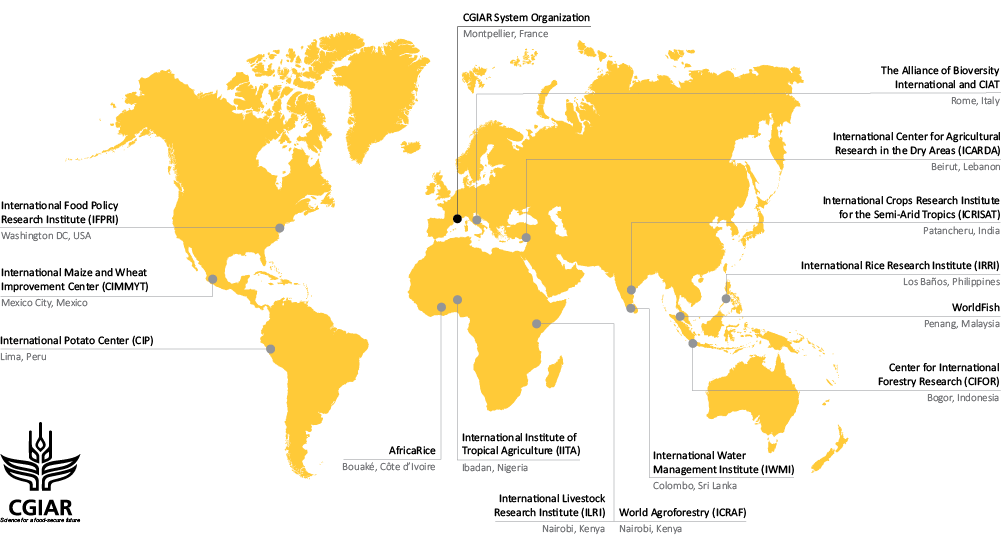CGIAR is the world’s largest global agricultural innovation network. It comprises of 15 international agricultural research centres, with more than 9,000 scientists working in low and lower-middle-income countries. The centres work towards a world free of:
- poverty
- hunger
- malnutrition
- environmental degradation.
With a presence in more than 89 countries, and a deep knowledge of local customs, values and markets, CGIAR research centres work closely with more than 3,000 partner organisations. These include:
- national and regional research institutes
- civil society organisations
- academia
- private sector organisations.
ACIAR manages Australia’s investment in this international agricultural research system. Australia has invested in CGIAR since it was established in 1971. CGIAR is well connected to the global development agenda. The centres are guided by the CGIAR System Board and operate on an annual budget of about US$900 million.
CGIAR is moving towards a unified and integrated ‘One CGIAR’. This aims to better equip the network to swiftly respond to new challenges such as the COVID-19 pandemic and the global food crisis. The reform involves a move from a network of 15 independent international research centres to a more cohesive structure under a common board.
ACIAR has been actively contributing to the reform to ensure CGIAR is well placed to deliver against the UN Sustainable Development Goals and the Paris Agreement and attract new funding contributions.
ACIAR staff have high-level representation on CGIAR governance bodies, including the:
- System Council
- Strategic Impact Assessment Monitoring and Evaluation Committee
- Investment Advisory Groups.
Australian scientists also contribute at the highest levels of leadership within the CGIAR as:
- board members
- research leadership
- informal advisory roles.
Australia contributes to CGIAR alongside other funders, including:
- World Bank
- United States of America (USA)
- Bill and Melinda Gates Foundation
- Germany
- India
- United Kingdom
- European Commission
- Mexico and many others.
CGIAR recently transitioned to a new research portfolio that strives for global and regional impact by organising its work around 3 action areas:
- systems transformation
- resilient agrifood systems
- genetic innovation.
These action areas align with the 2030 Research and Innovation Strategy which aims to:
- embrace a systems transformation approach
- leverage ambitious partnerships for change
- position regions, countries and landscapes as central dimensions of partnership, worldview and impact
- generate scientific evidence on multiple transformation pathways
- target risk-management and resilience as critical qualities for food, land and water systems
- harness innovative finance to leverage and deliver research through new investment and funding models
- make the digital revolution central to our way of working.
